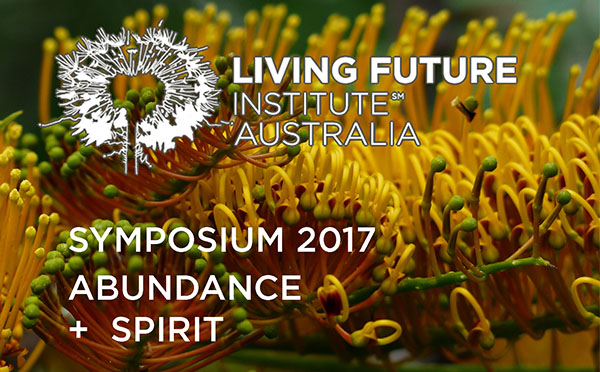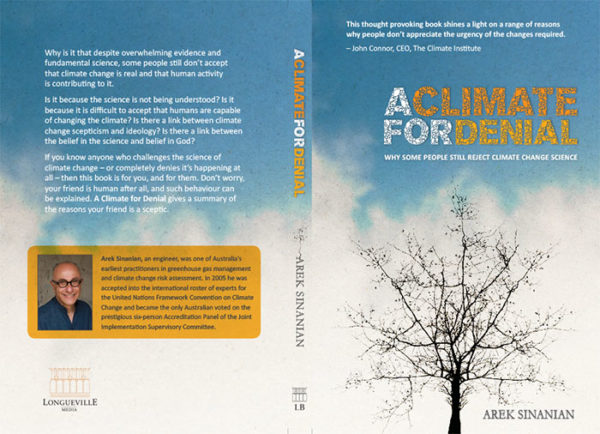News stories
- Transforce and sustainable transport: working with regional partners, helping regional businesses
- Post Paris: surviving a carbon constrained economy. An extract by Susan Kitchener
- SA & VIC: grants for energy efficiencies
- Ethical choices and B Corp: Reho Travel – an Australian certified B Corporation
- Events: 4th Australasian Emissions Reduction Summit, Living Future Institute Australia Symposium
- Autumn reading: A Climate for Denial, by Arek Sinanian
Missing out on our sustainability news?
We send newsletters periodically. Subscribe to our newsletter right here.
Transforce and sustainable transport
ƒ
Pangolin is working with regional partners, helping regional businesses
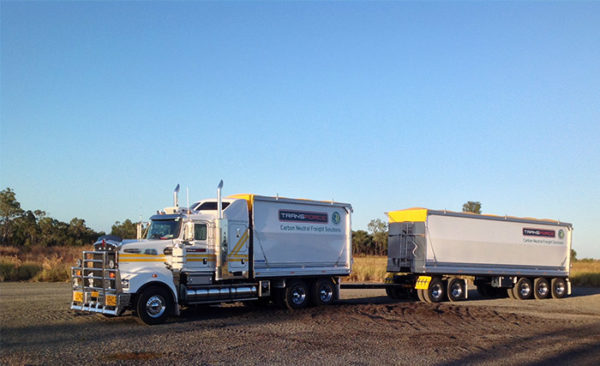 Working with regional consultants means we twice benefit from the local perspective: from our partner’s and the client’s. With our combined knowledge, experience and expertise it’s a win for all involved.
Working with regional consultants means we twice benefit from the local perspective: from our partner’s and the client’s. With our combined knowledge, experience and expertise it’s a win for all involved.
This year we’ve partnered with Louisa Kiely, Director of Carbon Farmers of Australia. Together Pangolin and Carbon Farmers helped transport company, Transforce Bulk Haulage, maintain its carbon neutral certification, NCOS, for a fifth year.
Transforce is located in Dubbo NSW and specialises in hauling agricultural commodities. The Founder and Managing Director, Steve Fieldus, is squarely focused on the company’s environmental impact. Transforce considers every aspect of its carbon footprint:
“Everything from the pens and paper we use, to our trucks on the road need to positively contribute to our carbon reduction strategies. We will reduce our carbon emissions at every opportunity in accordance with our targets and plans and we will offset those emissions that we can’t reduce.” (see Our carbon neutral journey, Transforce website).
Along with Louisa Kiely, we helped with the annual NCOS submission for the Federal Government certification, as well as providing the carbon offsetting requirements for the process.
Transforce recognised for sustainability
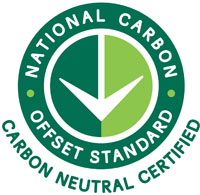 In September 2016 Transforce received the Green Rhino Award for Excellence in Sustainability at the Dubbo Chamber of Commerce Business Awards. Almost four years earlier Transforce had already become the first certified carbon neutral transport company in Australia.
In September 2016 Transforce received the Green Rhino Award for Excellence in Sustainability at the Dubbo Chamber of Commerce Business Awards. Almost four years earlier Transforce had already become the first certified carbon neutral transport company in Australia.
The company points out that achieving and maintaining carbon neutrality is a highly consultative process with third party experts and the NCOS team at the Department of Environment and Energy. This is particularly so, they say, if you are the first in an industry undergoing the process. There is also the cost to achieve and maintain certification, but this is not necessarily a negative. Those certified are serious about it; they adapt how they do business for the long term.
Founder and Managing Director, Steve Fieldus:
“Carbon neutral certification differentiates our business from the competition, in a very competitive market. Additionally, the methodology used to measure our carbon footprint helped us get a good handle on the more general costs within our business. Aside from the commercial benefits of NCOS certification, it is good for the planet and our future. We don’t want to leave the world a dirty place for our grandkids.” Visit the Transforce website.
More about Carbon Farmers of Australia
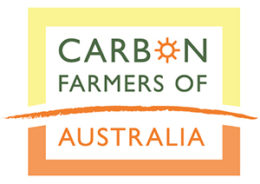 Since 2006 Carbon Farmers of Australia has helped farmers and regional businesses gain access to carbon markets. Their work now expands to industrial and commercial operations to prepare for a burgeoning Australian carbon trade industry. Visit Carbon Farmers of Australia.
Since 2006 Carbon Farmers of Australia has helped farmers and regional businesses gain access to carbon markets. Their work now expands to industrial and commercial operations to prepare for a burgeoning Australian carbon trade industry. Visit Carbon Farmers of Australia.
Post Paris: surviving a carbon-constrained economy
“Want to increase profit and decrease risk? Address your business’ greenhouse gas emissions.” By Pangolin’s Susan Kitchener.
Extract:
Australian business has traditionally viewed the requirement to reduce greenhouse gas (GHG) emissions as an unwelcome imposition placed on them by government, under pressure from green groups and other climate ‘alarmists’. However many international companies are taking a different view. At the 2015 COP21 assembly of the United Nations Framework Convention on Climate Change (UNFCCC) in Paris, a number of leading international industry associations and organizations, representing thousands of companies from around the globe presented a series of so-called ‘Carbon Markets Statements’ in order to emphasise the importance of including Carbon Market provisions in the Paris Agreement (Johannsdottir & Mcinerney 2016).
In the absence of the global carbon price they were calling for, many have now taken a leadership position and are willingly addressing the problem – and excitingly they are reporting numerous business benefits and risk reductions.
Business’ attitude to climate change is morphing rapidly from a compliance burden to a business opportunity. It is critical that Australian businesses move immediately to reduce emissions if they are to remain competitive in a carbon-constrained future.
Australia’s position, more ambitious targets to come
Australia’s target of a 26 to 28 percent reduction in greenhouse gas emissions below 2005 levels by 2030 remains unchanged, however the Paris agreement includes mechanisms to review reduction targets every five years starting from 2020. Each stock-take will have to result in a more ambitious target (Climate Council 2015).
It is not a question of “if” but “when” more stringent regulations will be introduced to govern how businesses operate; meanwhile companies will have to demonstrate significantly more climate action in order to support their social license to operate (CDP 2016).
- See Susan Kitchener’s complete paper with references here (PDF, 275 KB)
- See more on Science Based Targets
About the author: Emissions Consultant, Susan Kitchener
Susan Kitchener is an Emissions Consultant with Pangolin Associates. She brings more than 20 years of experience with multinational corporations to Pangolin. With her expertise in sustainability, Susan helps organisations plan for, and benefit from, a low carbon economy.
South Australia & Victoria: grants for energy efficiencies
Check your eligibility
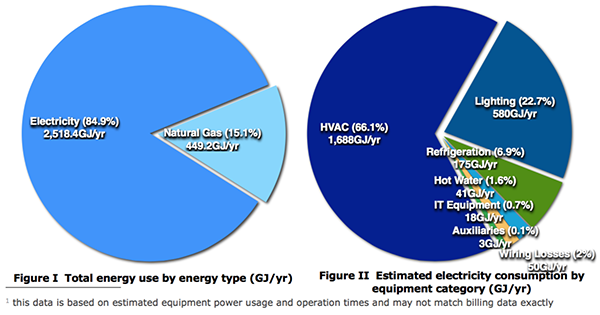
Energy intensive businesses in Victoria and South Australia can now seek state government grants for audits and efficiency actions. Read on.
As Susan Kitchener writes above, businesses that strategically reduce greenhouse gas emissions also reduce risk and cost. The longer you wait, with tougher regulations in the future, the more difficult and expensive actions become. Likewise, on the 17th February 2017, APRA’s Geoff Summerhayes spoke to the Insurance Council of Australia. Summerhayes:
“Some climate risks are distinctly ‘financial’ in nature. Many of these risks are foreseeable, material and actionable now.”
Pangolin helps businesses substantially reduce power costs through Energy Audits and detailed efficiency recommendations. Several of our clients have benefitted from energy grants previously available. Take a look at their case studies:
Energy grants South Australia
The South Australian Energy Productivity Program (SAEPP) requires a Type 2 (formerly Level 2) Energy Audit. Pangolin auditors have the accreditations to assist with this audit. We can also help with efficiency implementation measures.
* Implementation applications close 31 May 2018.
- Grants cover up to 75% of a Type 2 Energy Audit, to the value of $15,000.
- Grants vary for implementation, and include purchase of capital equipment and related software, and contracting third party expertise to upgrade existing systems.
Check your SA grant eligibility here.
Energy grants Victoria
Sustainability Victoria Boosting Productivity grant is available for energy intensive SME’s.
* Grant applications close 28 September 2017.
- Grants cover up to 50% of an energy assessment (or Energy Audit), amounts vary for basic or detailed assessments.
- Grants for implementation: up to $3000.
Check your VIC grant eligibility here.
See more…
- Read more about grants in South Australia
- Read more about grants in Victoria
- Talk to us about a grant.
Ethical choices and B Corp: Reho Travel
An Australian certified B Corporation
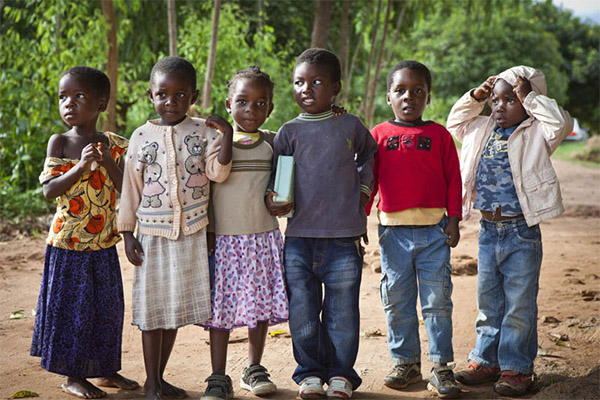 Pangolin is a founding and certified member of B Corp in Australia. B Corp recognises higher standards of social and environmental responsibility globally. We’d like to introduce you to another member, our client Reho Travel.
Pangolin is a founding and certified member of B Corp in Australia. B Corp recognises higher standards of social and environmental responsibility globally. We’d like to introduce you to another member, our client Reho Travel.
Our client says…
 “Reho Travel grew out of an overland luxury bus concept in the UK in the 70’s, then transformed into a High Street bucket shop in the 80’s and has now evolved into a highly respected and award winning Australian owned
“Reho Travel grew out of an overland luxury bus concept in the UK in the 70’s, then transformed into a High Street bucket shop in the 80’s and has now evolved into a highly respected and award winning Australian owned 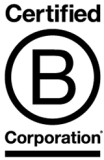 travel management company. Reho Travel is the only such company in the world that has attained B Corp Certification.
travel management company. Reho Travel is the only such company in the world that has attained B Corp Certification.
With offices in Melbourne and Sydney, Reho Travel is focused on managing the travel for companies with a travel spend up to $5m. Specialist divisions include Reho Study Tours and Reho Leisure.
We became a certified B Corp member because the movement reflected our values. B Corp provides a strong framework for our ideas on how the entire travel industry can make a positive difference in the world. Currently we invest 10% of the company’s profits in Empower Projects, a grassroots for purpose organisation that enables community self-reliance. Our main efforts centre on the Mpamba region, a community of 38 villages, and building the capacity of rural communities in Malawi to achieve their vision for self-reliance.
We are committed to influencing change in the travel industry’s supply chain. We see a future where customers choose an airline for its low fuel consumption, a hotel in the developing world for its labour practices, and a tour company that involves the local community, booking them all with a travel agency that has the awareness and experience to guide them toward suppliers that have a positive impact on the world.”
Karsten Horne
CEO Reho Travel
Reho’s environmental actions
Reho Travel engaged Pangolin Associates for a carbon footprint for 2015/16 and onwards. The company has also offset greenhouse gas emissions for 2015/16 and 2016/17. Reho Travel is now a net zero emissions business.
Carbon offsetting
Reho selected carbon credits that aligned with business choices and principles:
- Tasmania: Forests Alive, forest conservation/avoided deforestation,
- Uganda: Impact Carbon’s Improved Cookstoves for Social Impact.
Events
4th Australasian Emissions Reduction Summit
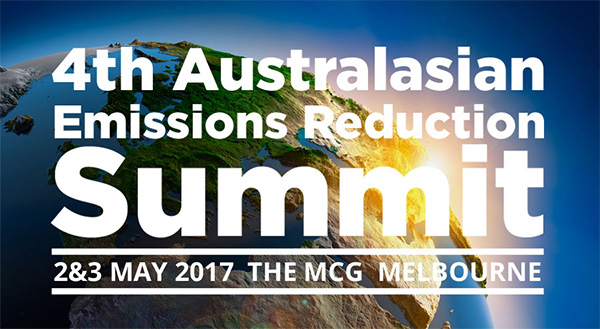 2-3 May 2017: The MCG, Melbourne VIC
2-3 May 2017: The MCG, Melbourne VIC
Global leaders from business and government come together for the Australasian Emissions Reduction Summit, covering a range of topics critical to a low carbon economy. The summit provides notable speakers, conference debates, workshops, networking sessions, demonstrations of technologies, and more.
Find out more about the Summit.
Living Future Institute Australia Symposium: Abundance & Spirit
The symposium explores resilient, healthy, environmentally responsible community development. As a Gold Sponsor, Pangolin Associates will ensure this is a net zero emissions event, providing a carbon footprint and carbon offsetting services.
Find out more about the symposium.
*Pangolin will attend both events. Please come over and say g’day!
Autumn reading: A Climate for Denial
By Arek Sinanian
Arek Sinanian is an author and Climate Change Risk Management Consultant. He provides expertise for Pangolin Associates projects.
Arek has now published the book A Climate for Denial: Why Some People Still Reject Climate Change Science. The book considers why, despite overwhelming scientific evidence, anthropogenic climate change remains unaccepted by many. Arek explores links and beliefs, giving explanations for skepticism. Find the Kindle Edition on Amazon here. Hard copies available soon.


